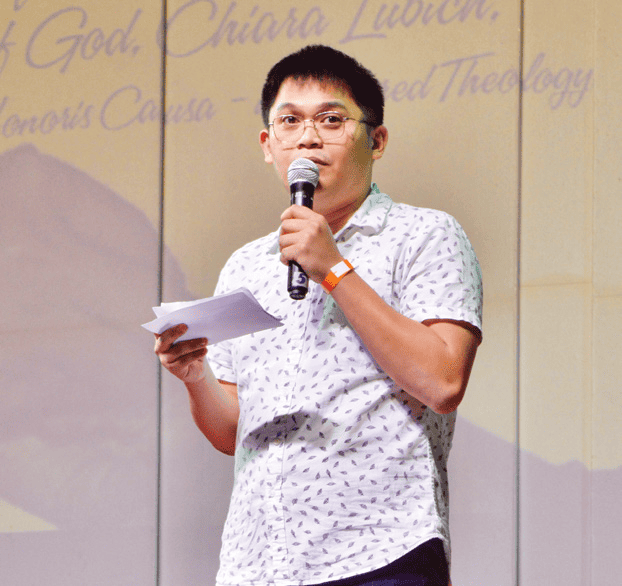
Who can say that mental health is not important? It is everyone’s concern, and is as important as physical health. Mental health in the Philippines (which is highly stigmatized and often plagued by misconceptions according to various studies) has been given space and a spotlight, especially during the COVID-19 pandemic.
I decided to pursue counseling in graduate studies because I faced various concerns of my learners who had problems with their studies and within the family. Even the parents of my learners came to me and asked for help or advice. One of the prerequisites for my dissertation is to undergo a supervised internship at In Touch Community Services.
After weeks of intensive training at the In Touch clinic, I encountered a variety of mental health concerns such as depression, anxiety, panic attacks, stress and anger, work-related and relationship issues, family or couple concerns, and problems faced by the LGBT community.
Once, I had a call that I will never forget. The caller shared that he was having problems with his family, work, and had just gone through a breakup from a seven-year relationship. We went to problem-talk. When I heard the caller’s words “Pagod na pagod na ako” (I’m so tired), “Ubos na ubos na ako” (I’m so exhausted), I already sensed that his concern could lead to a life-threatening situation. When I asked him what these words meant, he revealed that he really wanted to end his life during the time we were on the phone. Then asking him where he was, I found out that the caller was at the side of a highway, intending to cross it to get hit by a speeding car. Then I asked him a favor: to go to a safe place. I tried to ask for his phone number and permission to call him just in case the call was disconnected, but he disregarded my requests. I asked him if I could share the safety protocol with him, and he gave me his consent. “Talk and be with your closest person to accompany you at the moment.” I also shared that he may opt to go to the nearest emergency room of a hospital, barangay (village), or police station. As I was saying this, he interrupted me and said, “Ibababa ko na ito. Talagang init na init ako sa sarili ko. Gustung-gusto ko siyang gawin!” (I will hang up the phone. I feel so tense. I really want to do it now!) With that, he ended the call.
I did not know what he did next. I had been waiting five minutes, ten minutes, then fifteen minutes for him to call back. After a few more minutes, he called back. He informed me that he went to the police station. He said he knows a policeman who was on duty at the station at that time. He also shared that his friends went to the police station, and told him that they will accompany him until he gets better. He was very grateful for the help I gave as he did not expect someone willing to give some time to listen to him. He thanked the crisis hotline for offering that kind of service without payment, not expecting anything in return. For him, this service is very important because it helps many people in need, especially those with mental health issues.
One important thing I would always apply whenever I am engaged in a call is to make a conscious effort to see that those who call are persons in need of my attention. So, I make sure that I listen wholeheartedly, validate their worries, appreciate them for reaching out, and explore the possible resources, support, and strengths they may have. For me, this is my opportunity to live the words of Jesus in the Gospel: “… do not let your left hand know what your right hand is doing” (Mt 6:3). In truth, I do not know these people, and all their calls are anonymous. I find my personal fulfillment here: in transcending myself to care for others. Moreover, this is where I can also live what I learned from the spirituality of the Focolare. In sharing the hurts and joys of others, I can be the first to love, love everyone, and love the other as myself. Through this wholehearted service I offer to persons in crisis, I’m happy to become an instrument in saving the lives of people in our community.
Mark Joseph Lorenzo




